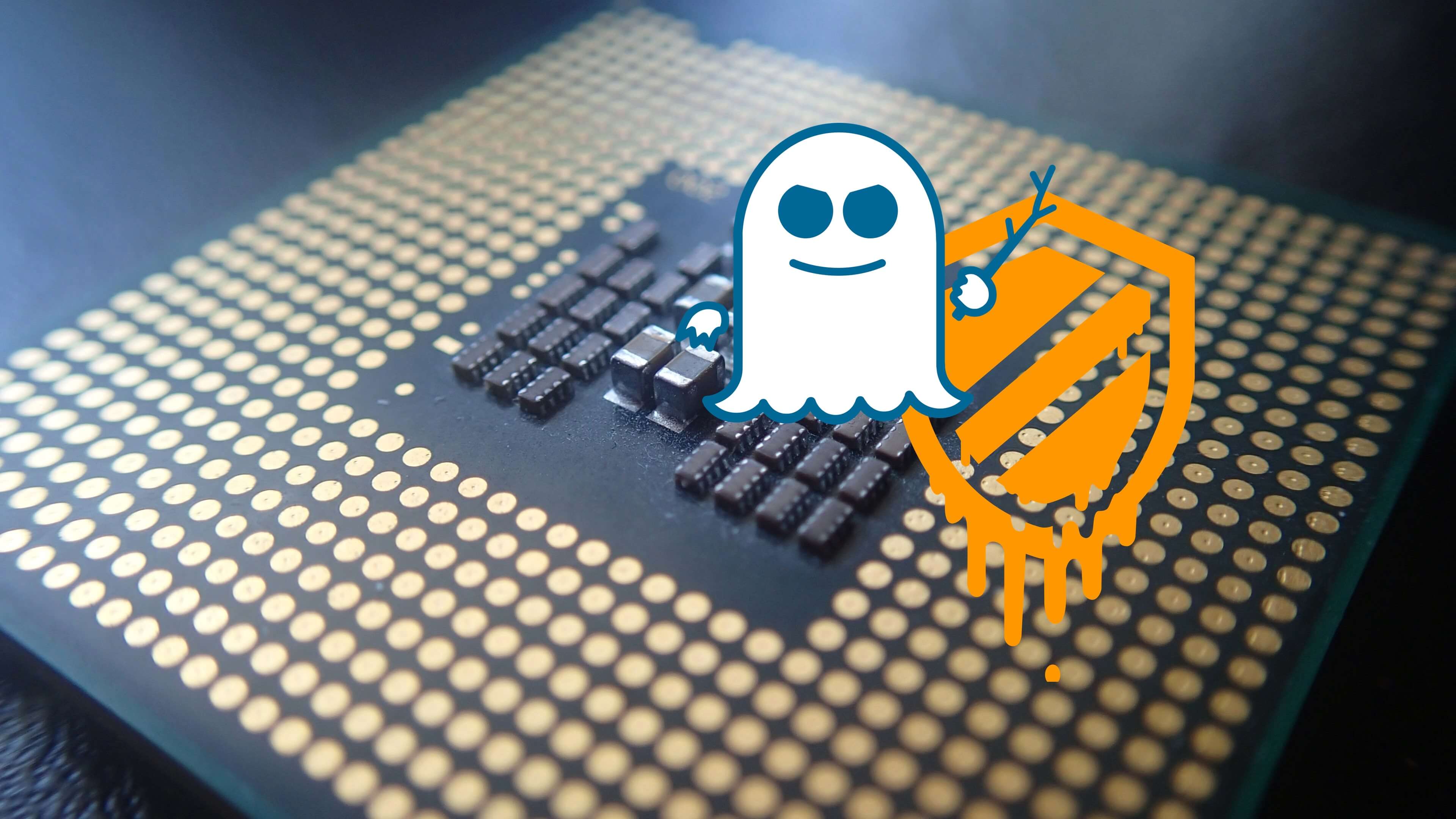Geekbench and Gaming Performance
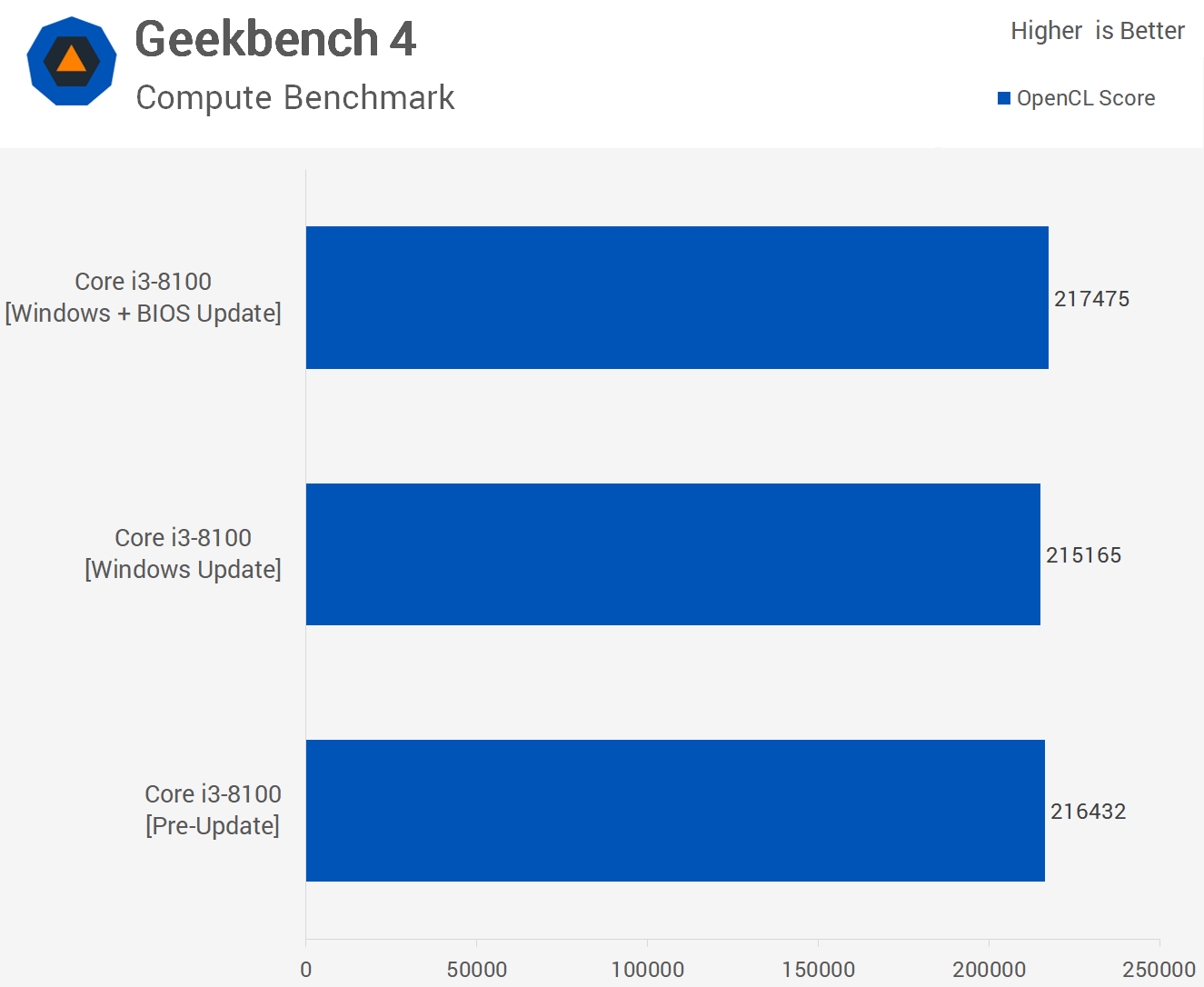
The Geekbench 4 compute test also shows similar performance with the updates installed.
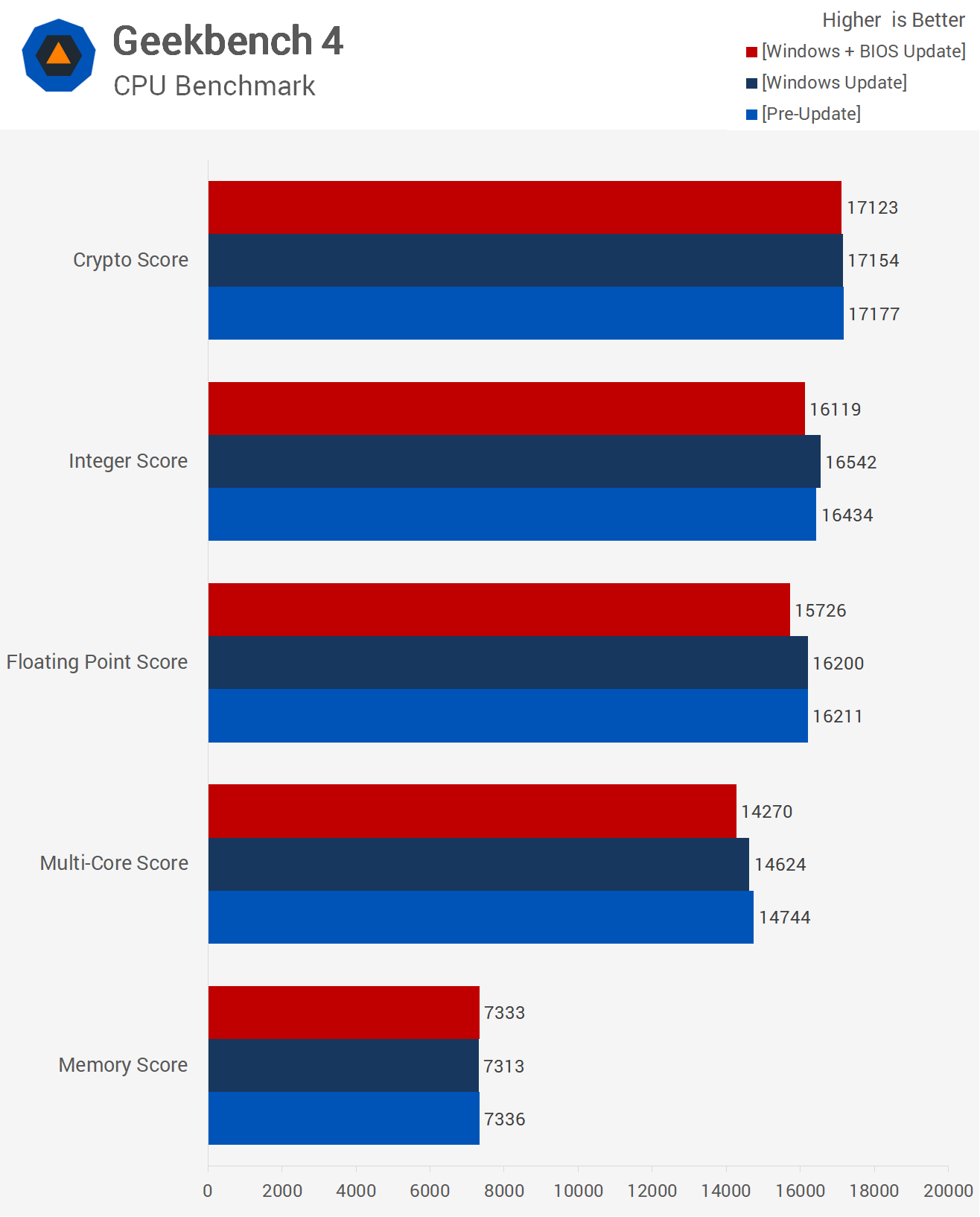
Geekbench also has a slue of CPU benchmarks and each category gets its own score. As you can see the crypto and memory scores are all much the same. We see a 3% reduction for the integer and floating point scores with just a 2% reduction for the multi-core score. Okay well the applications and synthetics didn't give us much, let's see if the games have any scary numbers for us.
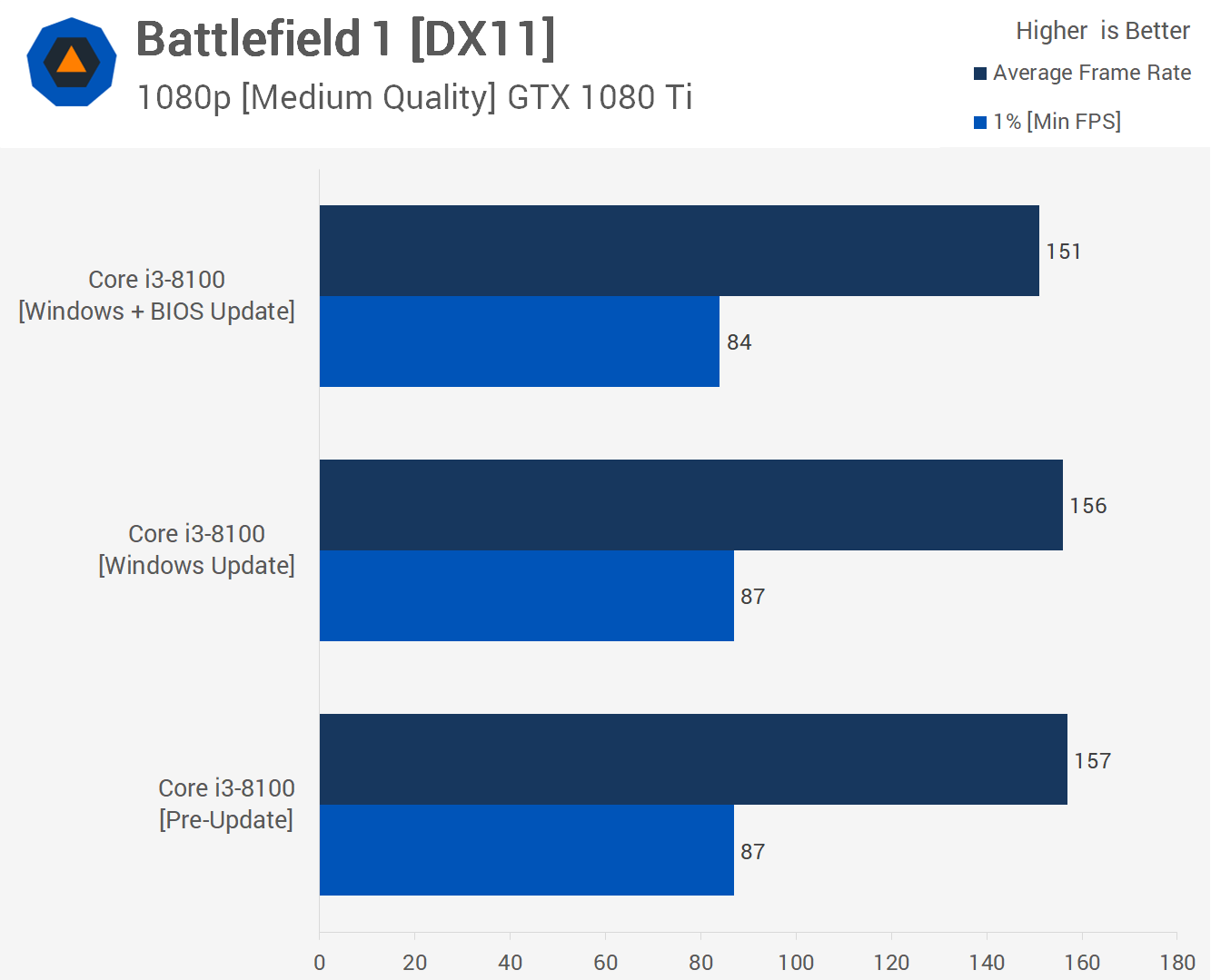
So here we are, our first game benchmark result and well things don't look that dramatic. We do see about a 4% reduction in performance and the Core i3-8100 was consistently slower in this test by 3-4%. Also for those wondering the GTX 1080 Ti, an insanely overpowered GPU for a Core i3 CPU, it's used to try and remove the GPU as a potential bottleneck and this gives us a better idea of the impact the CPU has on performance when gaming.
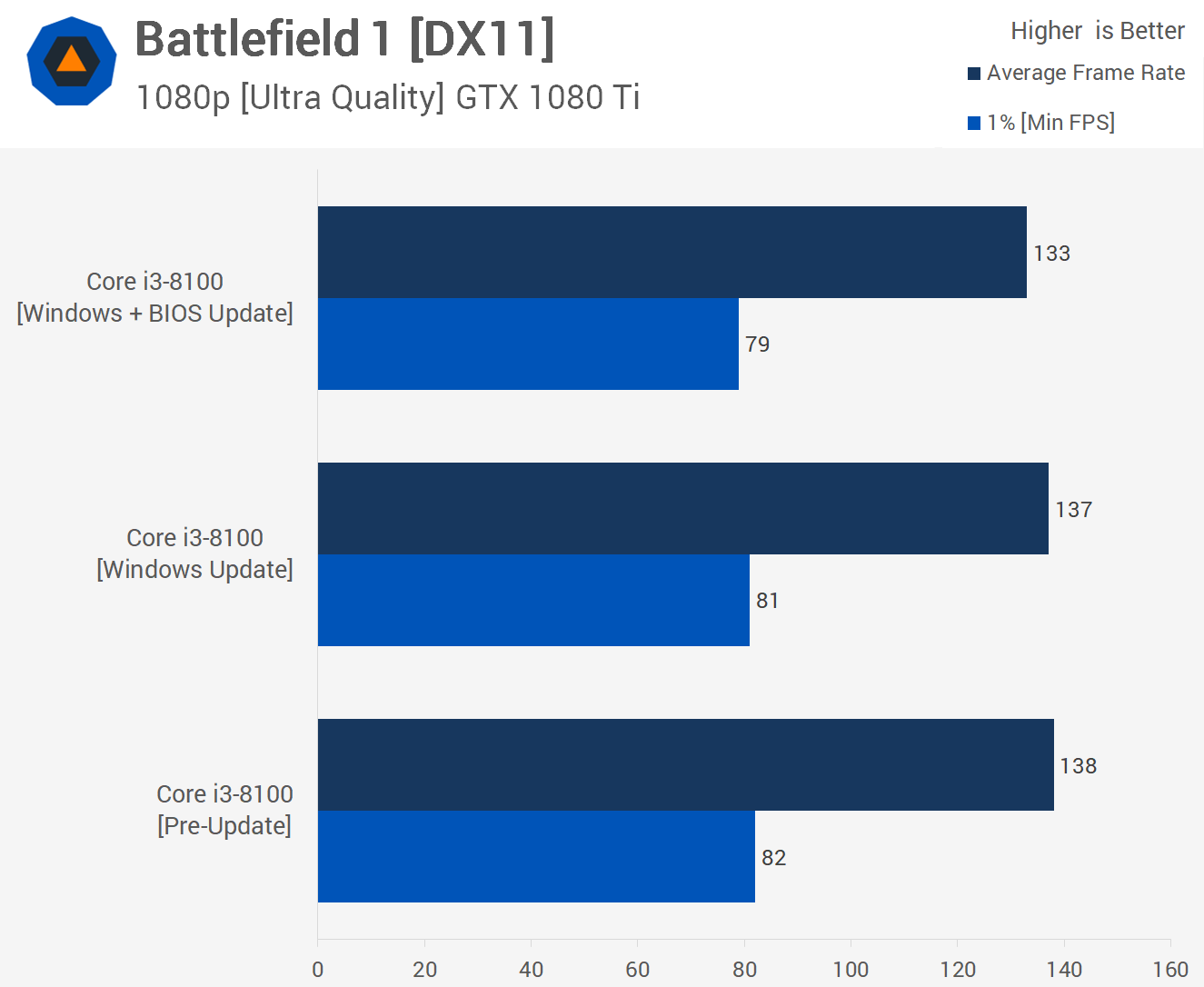
For a slightly more realistic test we've boosted the quality preset from medium to ultra and again we see a 4% reduction in performance with the Windows and BIOS updates installed.

Moving on we have Ashes of the Singularity: Escalation and again we see a 3 - 4% reduction in performance with the updates installed. Not a massive decline but a reduction in frame rate all the same and again the updated configuration did consistently come in slower.
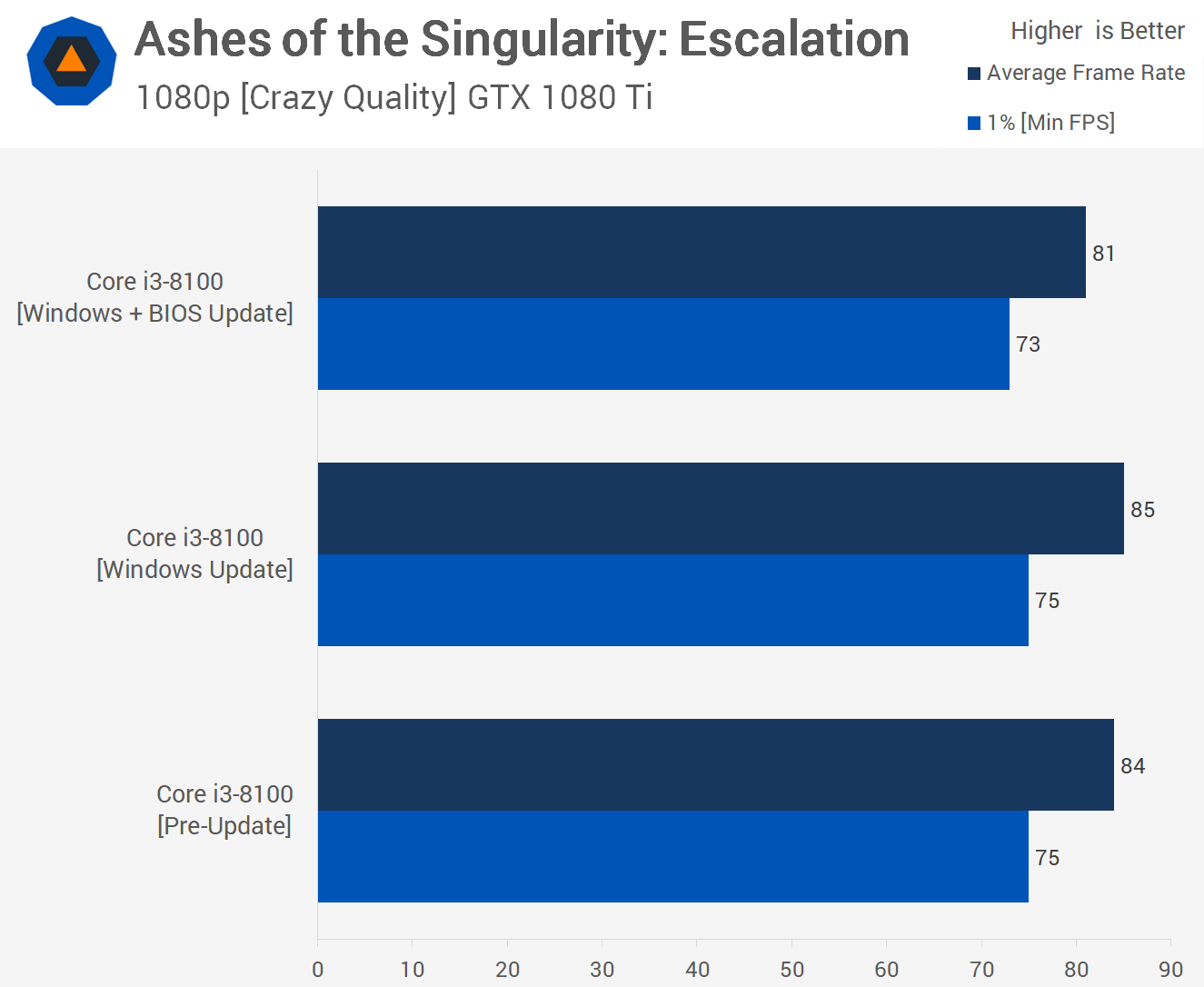
Even with the crazy preset enabled we still see the same 3 - 4% drop in frame rate.

Assassin's Creed: Origins isn't GPU bound here, the 1% low results with the 8700K for example reach around 90 fps. So while these results look GPU limited, I can assure you they aren't. So that being the case the BIOS update does deliver similar performance to that of the pre-updated configuration, certain within the margin of error.

Even with the Ultra High quality settings enabled we're still not GPU bound, yet despite that all three configurations deliver the exact same results.

I had thought we might see some larger margins in Rainbow Six Siege but that wasn't the case, in fact here we see almost no difference at all with the medium quality preset.
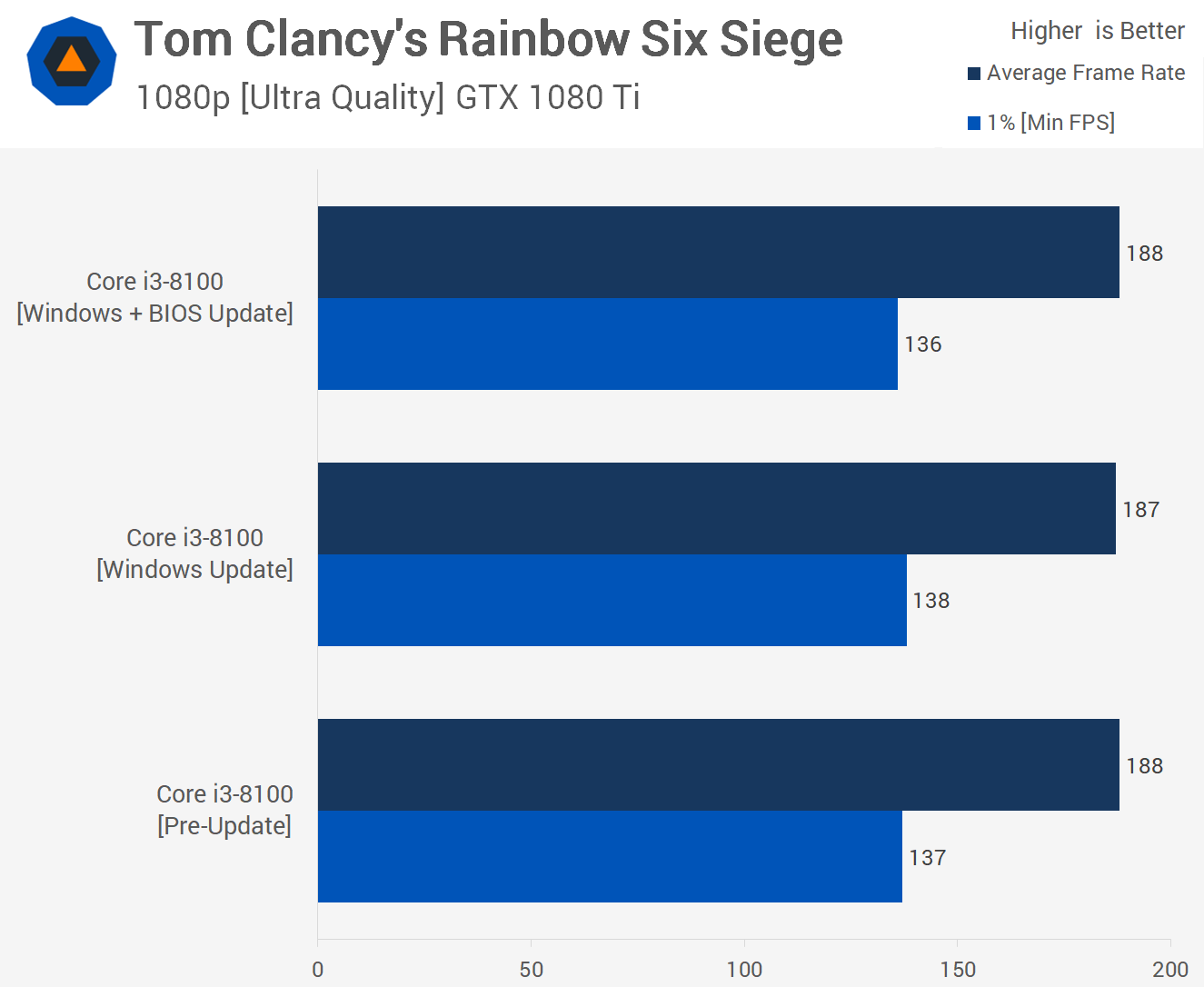
Shifting to the ulta quality settings doesn't change anything and again we see that the BIOS update has no negative impact on performance for this title.

The performance in F1 2017 also goes largely unchanged thought this time we do see a dip in the 1% low results, that said it's nothing more than a 3% reduction.

The same 3% drop for the 1% minimum can be seen with the Ultra High quality settings though again the average frame rates are all much the same.

The last game I've tested the Core i3-8100 with is Total War Warhammer II and here we see a 4% drop in frame rate for the 1% low result while the average remains much the same.

Then with the ultra quality settings we see almost no change in performance as all three configurations provide similar results.

What about the Core i7-8700K, how does it get on with the BIOS update. Well all the application and productivity tests were much the same, so no real performance drop off there. Here we see the Battlefield 1 performance using the medium quality preset allows for a similar 1% low result while the average dips by a 3% margin.

With the ultra quality performance we see virtually the same performance, the Windows update actually boosted the average frame rate by 2% which is still within the margin of error so I wouldn't read into that one too heavily.

Using the high quality preset we see virtually no change with Ashes of the Singularity. This is also true with the crazy quality preset enabled.

Margins were also slim for Assassin's Creed: Origins, here the BIOS update reduced the 1% low figure by 2% while the average remained the same. Then with the Ultra High quality preset enabled we see no difference in performance at all.
